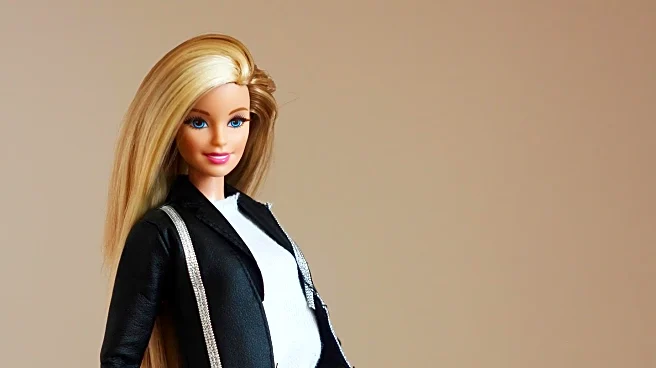What's Happening?
Labubu dolls, known for their zoomorphic design and bejeweled eyes, have gained significant popularity in the West this year. Originally designed by Hong Kong illustrator Kasing Lung and sold by Pop Mart, these dolls have become a symbol of consumerism and micro-trends. Despite retailing for $28, some rare editions are reselling for thousands of dollars. The dolls have been spotted with celebrities like Lady Gaga and David Beckham, and even mentioned in Lizzo's new single. Their popularity has sparked discussions on consumer behavior and the ethical implications of micro-trends.
Why It's Important?
The rise of Labubu dolls highlights the impact of social media on consumer trends and the potential for small items to become cultural phenomena. This trend reflects broader economic behaviors, such as the 'lipstick effect,' where consumers opt for affordable luxuries during economic downturns. The dolls' popularity may indicate shifts in consumer spending habits, with implications for the toy industry and luxury goods market. Additionally, the trend raises questions about sustainability and the fleeting nature of consumer interests, prompting discussions on the ethical aspects of such micro-trends.
Beyond the Headlines
The Labubu trend underscores the influence of social media in shaping consumer preferences and the potential for small, affordable items to become status symbols. This phenomenon may lead to increased scrutiny of consumerism and its impact on economic indicators, as well as discussions on the sustainability of such trends. The dolls' association with late-stage capitalism highlights societal concerns about corporate influence and consumer behavior, potentially prompting shifts in how brands approach marketing and product development.









